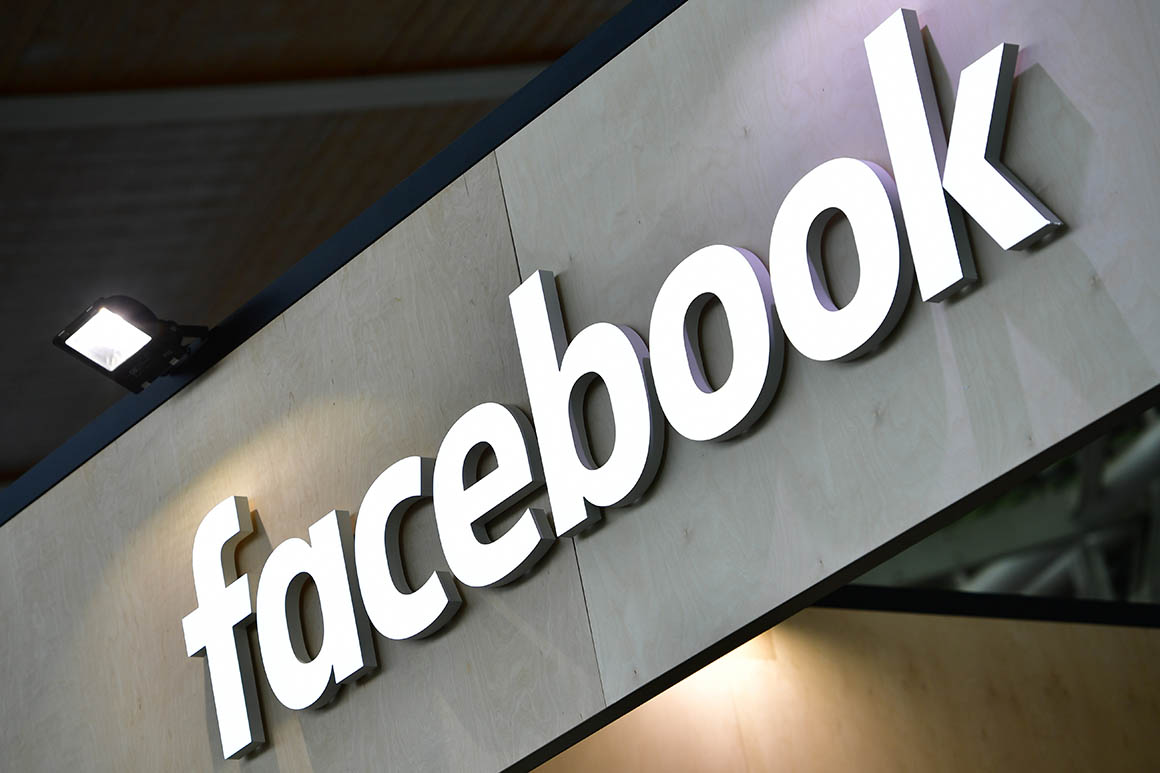
Nathaniel Gleicher, Facebook’s head of cybersecurity policy, told POLITICO that further labels would be added to all ads bought on the global platform by these organizations, as well to their nonpaid posts viewed in the U.S. from each outlet’s Facebook pages.
From later this summer, Facebook would also stop state-controlled media organizations from Russia, China and elsewhere from buying ads in the U.S. ahead of November’s presidential election. The company would not provide a date for when it would start banning these paid-for messages, though these outlets have bought few ads targeting the U.S., according to a review of Facebook’s transparency tools.
“If we see any of these entities engaging in deceptive behavior, we will take them down,” said Gleicher, who admitted he had yet to find such activity aimed at undermining the upcoming U.S. vote. “People must understand who is behind the arguments that they are seeing.”
The move is unlikely to quell criticism of how Facebook has handled recent posts from the U.S. president, which many people argued were fomenting violence against protesters who had taken to the streets in anger at the death of George Floyd in the custody of U.S. law enforcement.
Twitter, its smaller social networking rival, posted warning labels to a number of Trump’s tweets which the company said were “glorifying violence.” But Mark Zuckerberg, Facebook’s chief executive, refused to take similar action, and has repeatedly defended himself by claiming that it was not the responsibility of his company to police political speech.
State-controlled media
By taking aim at state-controlled media outlets — the organizations that will have warning labels added to their Facebook pages include ones from Russia, China, North Korea and Iran — the company is trying to dampen the role they can play in pushing potentially false information to Facebook’s 2.2 billion users worldwide.
In recent days, the likes of Russia Today, China’s Xinhua News and Iran’s PressTV have all run articles and videos of the U.S. protests to their millions of online followers on Facebook, though these organizations have not yet pushed outright falsities on the network. Still, European and U.S. officials have repeatedly warned these government-controlled outlets, particularly those backed by the Kremlin, have pushed narratives aimed at undermining Western democracies.
Last year, for instance, Facebook removed more than 350 pages which had portrayed themselves as independent media organizations, but were linked to employees of Sputnik, the Kremlin-backed outlet. These deleted pages had pushed messages critical of the NATO — a regular target for Russian media.
“They’re labeling something,” said Graham Brookie, director of The Atlantic Council’s Digital Forensics Research Laboratory, who tracks misinformation and was consulted about Facebook’s new approach to state-backed outlets. “From what has happened in the last two weeks, that is a departure from what the Facebook chief executive has been saying.”
When asked why Facebook would allow these organizations to use its network if there were concerns about deceptive behavior, Gleicher, the Facebook executive, said it was not the company’s role to ban these outlets, but to provide greater transparency on who was behind them.
A warning label will be added to any post from these outlets’ Facebook pages that is shared by individuals across the network. But a label will not be added to similar articles or videos that people add directly to their own Facebook pages. State-controlled media outlets can appeal to have these labels removed.
“This is about actors’ identification and transparency,” Gleicher said. “We see the problem and challenge with state-controlled media entities around the world.”
Facebook is scrambling to strengthen its digital protections ahead of this year’s U.S. presidential vote after foreign governments, particularly Russia, were accused of meddling in the 2016 vote by the country’s intelligence agencies. The European Commission also said the Kremlin had targeted last year’s EU parliamentary vote with misinformation, though Brussels has provided little evidence to substantiate those claims.
Gleicher acknowledged the upcoming U.S. election would likely again be targeted by foreign actors, though he said that Facebook had become better at both detecting and removing this activity before it reached voters. The company has taken down a slew of inauthentic activity — both aimed at the U.S. and elsewhere — in the last 12 months.
Still, misinformation experts warned that domestic American groups, many of which have learned lessons from Russia’s involvement in the 2016 presidential vote, may play a greater role in November to push false claims than overseas groups. Facebook’s announcement about labeling state-controlled media would not touch such home-grown activity.
“It’s a step in the right direction,” Laura Rosenberger, a senior fellow at The German Marshall Fund of the United States, a think tank in Washington, DC. “However, this step is a drop in the bucket in terms of what we need to be seeing in how state-backed media is weaponizing information.”
Source: politico.com
See more here: news365.stream






